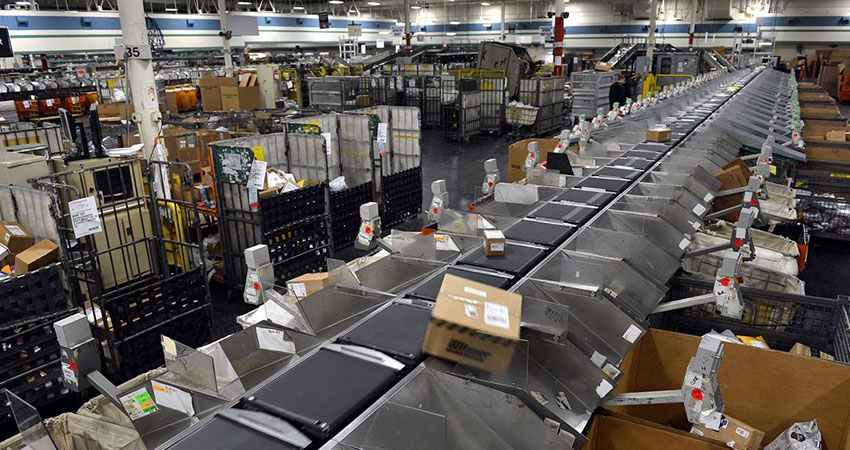The U.S. Postal Service announced a number of measures aimed at addressing peak season surges later this year, after the USPS got buried in a deluge of holiday parcels in November and December, many of them handed off from UPS and FedEx and their maxed-out networks.
The plan calls for adding 138 new package sorters in time for peak season, while additional processing machines and advanced material handling equipment will be purchased over the next 18 months as package volume grows. In March, USPS reported that customer demand for package deliveries rose 28% vs. the prior year.
USPS also plans to lease an additional 45 annex facilities located near processing centers in key locations to support package surges and overflows.
Lastly, the USPS will relocate or remove unnecessary letter and flat sorting equipment at 18 of its facilities to make room for more package sorting equipment by November, an initiative that was put on hold in 2015.
“Moving, removing, and repurposing mail processing equipment and operations or ‘operational mail moves’ is an ongoing Postal Service strategy dating back decades that allows for more efficient, timely delivery of mail and packages,” the USPS said in a release. It added while some jobs will be affected by the changes, it will not result in layoffs.
“The Postal Service’s future depends on its ability to adapt to the evolving demands of our customers,” said Postmaster General and CEO Louis DeJoy. “These initiatives and investments give our employees the infrastructure and technology they need to serve today’s ecommerce marketplace reliably and efficiently. This optimization will lead to more efficient and reliable performance in our plants, which in turn will enhance our ability to predictably and reliably deliver mail to the more than 161 million addresses we serve each day.”
These moves are part of an extensive 10-year USPS reform plan DeJoy announced in March, in an attempt to make the red ink-soaked agency more solvent while improving its performance. The plan calls for reaching break-even by FY 2023, thus avoiding $160 billion in projected losses, and investing $40 billion in the USPS workforce, new vehicles, plus improvements at local post offices, infrastructure upgrades and technology implementation.

